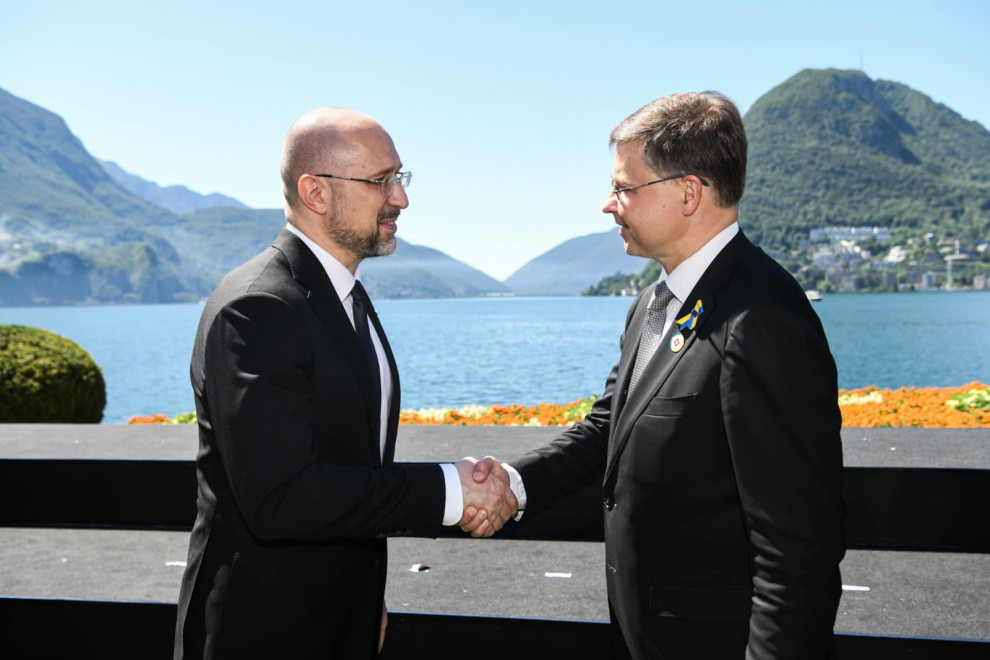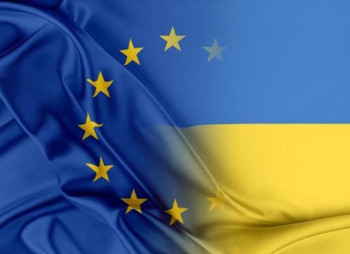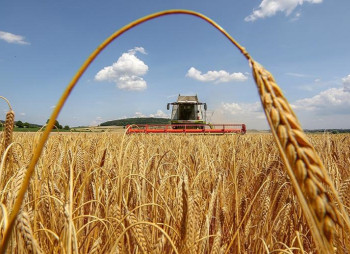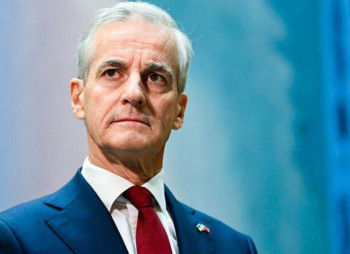The EBRD and European Union are further strengthening their already close cooperation on supporting Ukraine in wartime, formalising a commitment for the European Commission to provide guarantees to support €70 million of recent EBRD loans to Ukrainian companies that provide vital services to the country’s real economy.
These loans - part of the €1 billion which the EBRD will invest in Ukraine in 2022, with donors and partners - include €50 million in liquidity support to UkrZaliznytsya (UZ), Ukraine’s railway company, and support for the country’s pharmaceutical industry.
The guarantees are from the European Union’s EFSD (European Fund for Sustainable Development), the financing arm of the EU External Investment Plan promoting investment in Africa and the EU Neighbourhood, and will partially mitigate the EBRD’s risk of disbursement in the current war environment.
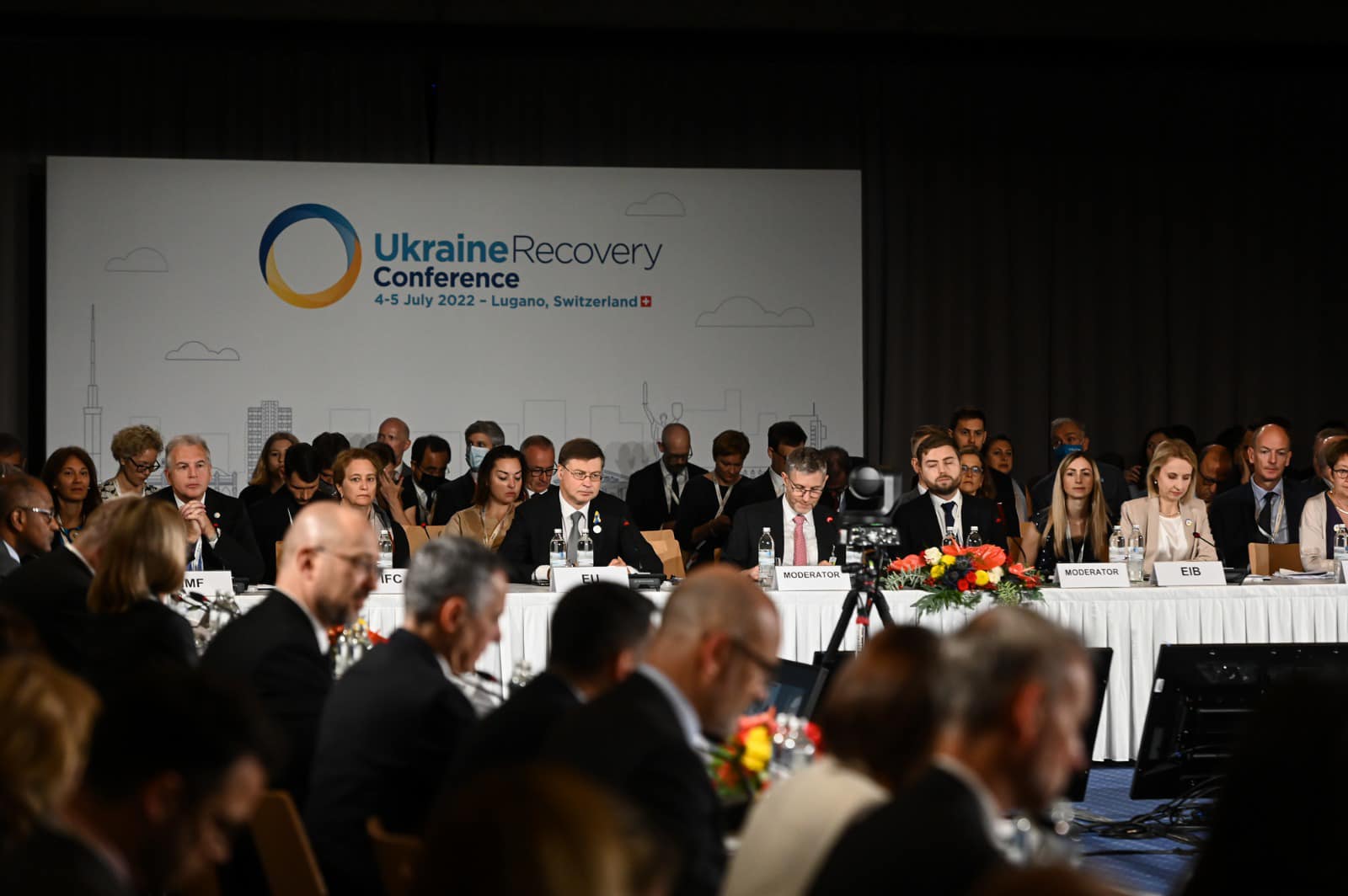
EBRD President Odile Renaud-Basso and European Commission Executive Vice-President Valdis Dombrovskis met to sign the agreement in Lugano, Switzerland, on the fringes of an international conference to begin planning Ukraine’s post-war reconstruction.
“In partnership with the European Union, we are proud to make a contribution to the continued running of key services and industries that help maintain everyday access to vital services for citizens. It is more important than ever to keep the real economy working,” said President Renaud-Basso.
“The EU stands with the Ukrainian government and people in their fight against the unjustified aggression from Russia. Thanks to our guarantee we enable EBRD to provide liquidity to the Ukrainian Railway company and to Farmak, the lead Ukrainian manufacturer in the pharmaceutical sector, thus ensuring vital service companies to continue to operate for the benefit of Ukrainian people,” said Mr Dombrovskis.
To address the Ukrainian economy’s current needs, the EBRD is prioritising five areas: trade finance, energy security, vital infrastructure, food security (covering provision of liquidity to farmers via banks for the spring sowing campaign as well as to agribusiness companies and food retailers) and providing liquidity to pharmaceutical companies. Investments in all areas will involve risk-sharing with partners.
The EBRD was swift to condemn the Russian invasion of Ukraine on 24 February and pledged to stand by Ukraine. In early April, the EBRD’s Board of Governors voted to suspend open-endedly the access of Russian Federation and Belarus to EBRD finance and expertise, and the Bank has closed its offices in Russia and Belarus.
As well as providing a €2 billion resilience package for Ukraine and neighbouring countries affected by the war, the EBRD has pledged to help finance Ukraine’s reconstruction once conditions permit. The Lugano conference is a first international attempt to coordinate such efforts with the Ukrainian government.
The European Union’s European Fund for Sustainable Development (EFSD) will support the project as part of a common programme with the EBRD, which focuses on municipal, infrastructure and industrial resilience in the European Neighbourhood East and European Neighbourhood South. It supports economies affected by the Covid-19 pandemic and now by the Russia-Ukraine war.


